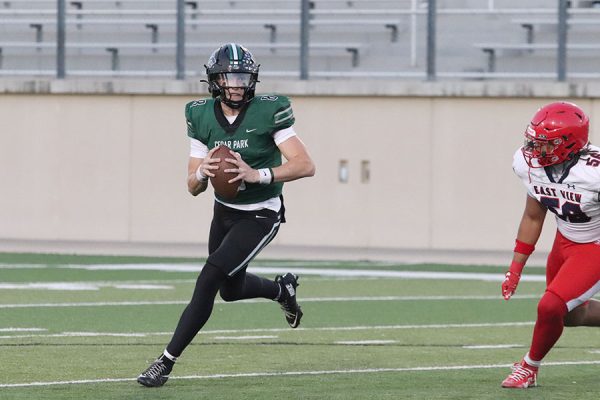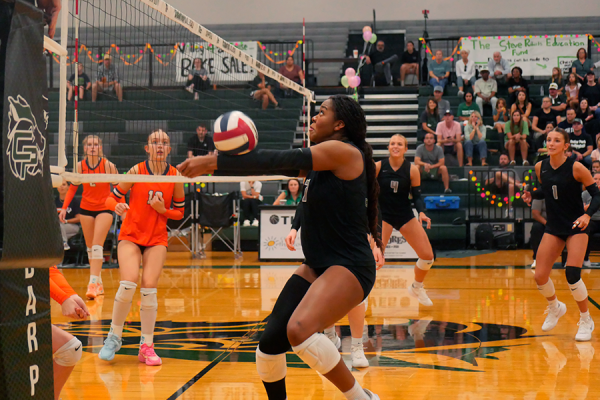All for the Patient
Student Body Vice President, HOSA State President Speaks on Healthcare Experience, Mission
Smiling with her dog Hari for her commitment to the University of Texas at Austin in the fall, senior Aashna Ravi poses at her home. Ravi plans to major in Health and Society, an interdisciplinary program within the College of Liberal Arts. “As an aspiring healthcare professional, being able to get that higher understanding of how people are affected by the background they come from will be especially helpful as I go forward into a career that is very people oriented,” Ravi said. “Going forward I hope that there’s a lot more growth in terms of accessible healthcare.”
May 10, 2022
Her future is extensive. Learning about the variety of healthcare practices in the world within the classrooms at UT, traveling abroad to a spanish-speaking country to see community medicine first-hand, becoming a physician’s assistant and building strong relationships with patients are just a handful of possible accomplishments in store for senior Aashna Ravi.
On March 25, 2021, Ravi was elected the HOSA state president after her initial participation in HOSA competitions freshman year and attending area and state leadership conferences. Before becoming president, she ran and was elected the school chapter historian then a regional position where she was then nominated for a state position.
“As state president, it was definitely an eye opening opportunity in terms of being able to see all the ins and outs of HOSA from a new perspective. My experience also brought increased opportunity, socially in terms of meeting and engaging with people from all over the state,” Ravi said. “In light of everything that has happened with COVID-19 and worker burnout I hope that it inspires more people to take a passionate path in medicine. I do hope that in the future, we can give people greater access to healthcare. There are underserved groups all over the country, all over the world and in developing countries.”
HOSA candidates running for office go through the slating process that allows the HOSA nominating committee discretion over the positions candidates will run for. Candidates can be slated at either the regional or state level. Ravi was eventually slated unopposed for state president.
“I had worked with the team who had slated me so it’s the natural progression to run for state next given all the requirements are met so that’s what brought me to the state level,” Ravi said. “I tested the state leadership conference, did my interview, did my campaign speech. I was slated for president unopposed. All of the other individuals on the slate were running against someone else and at that moment I was relieved, and this is going to be great, I’m very excited for what’s to come. I was very happy to be in the state team at all even though I was slated for president, I would have been happy with any position.”
According to Ravi, she attests to a great networking and teacher mentorship that put her in a position to run for statewide office. Former Health Science teacher Tami Beall helped prepare her for interviews, tests, the election process, and speeches.
“I didn’t really belong to a group of students entering high school,” Ravi said. “I found myself spending almost every single day in Mrs. Beal’s classroom my freshman year. I left PE to go sit in her classroom and help her with health science stuff and do all the HOSA things. I was in there a lot and really got a taste of what the health science program at the school was like and what HOSA had to offer me as a student.”
Within school clubs, Ravi is a member in Student Council and was the student body vice president for this school year. The role requires communication between the school administration, the club and the student body at-large.
“I feel like with student council, it was like we were all on the same page with everything that was going on in the high school so that really gave me that sense of community as everybody here is working towards the same goals,” Ravi said. “These are the people I see every single day at high school. I’ve learned so much from other people and student council, and the perspectives that I didn’t previously have on some of the school issues, issues in general, and the group of friends I’ve made there have helped me a lot during high school.”
With her medical-related extracurriculars, Ravi has researched going to three years of graduate school to become a Physician’s Assistant. As a mid-level health care provider, PAs have more time to spend building relationships with patients and have the ability to change their specialty within their career without redoing residency like physicians.
“PA school is an opportunity to get that higher level of patient understanding because in contrast to more physicians, PAs get more time to talk to the patient, get a comprehensive understanding of what the patient goes through and it’s more patient oriented,” Ravi said. “It’s the aspect of teamwork that really drew me to the career, being able to discuss and give the best care to the patient instead of one person making the sole decision, you have a team of people you can confer with to make sure you’re giving the best care to your patient. You get your own autonomy in the workplace being able to see patients on your own.”
In the fall, Ravi plans to attend the University of Texas at Austin to major in Health and Society, an interdisciplinary Liberal Arts major where students can take courses in the College of Natural Sciences, the College of Education, the College of Communication, and the LBJ School of Public Affairs.
“It’s a great way to get a piece of every part which eventually will lead me to be a more informed health care professional,” Ravi said. “Another bigger reason I chose this major, is I have direct influence from some of the stuff I grew up with. Being able to think back on how my culture has affected Indian medicine, the way I eat, the medicinal routines, the activities I take part in, the social culture it really drew me into the health and society major focusing on community, culture, social, and ethical aspects of healthcare.”
According to Ravi, future and current students seeking to involve themselves in HOSA, student council or other organizations should not be afraid to try things out as it may be life-changing.
“Something that really helped me these past four years is just meeting new people. You never know what that first connection is going to spark whether that be new opportunities, new friends, a new support system,” Ravi said. “When reaching out to people, you’re inviting new opportunities into your life and whether that’s good or bad, you can always take a lesson from whatever you learned or experienced. Getting involved in STUCO and HOSA have given me a community and given me a support system that I’ve used for so many years.”


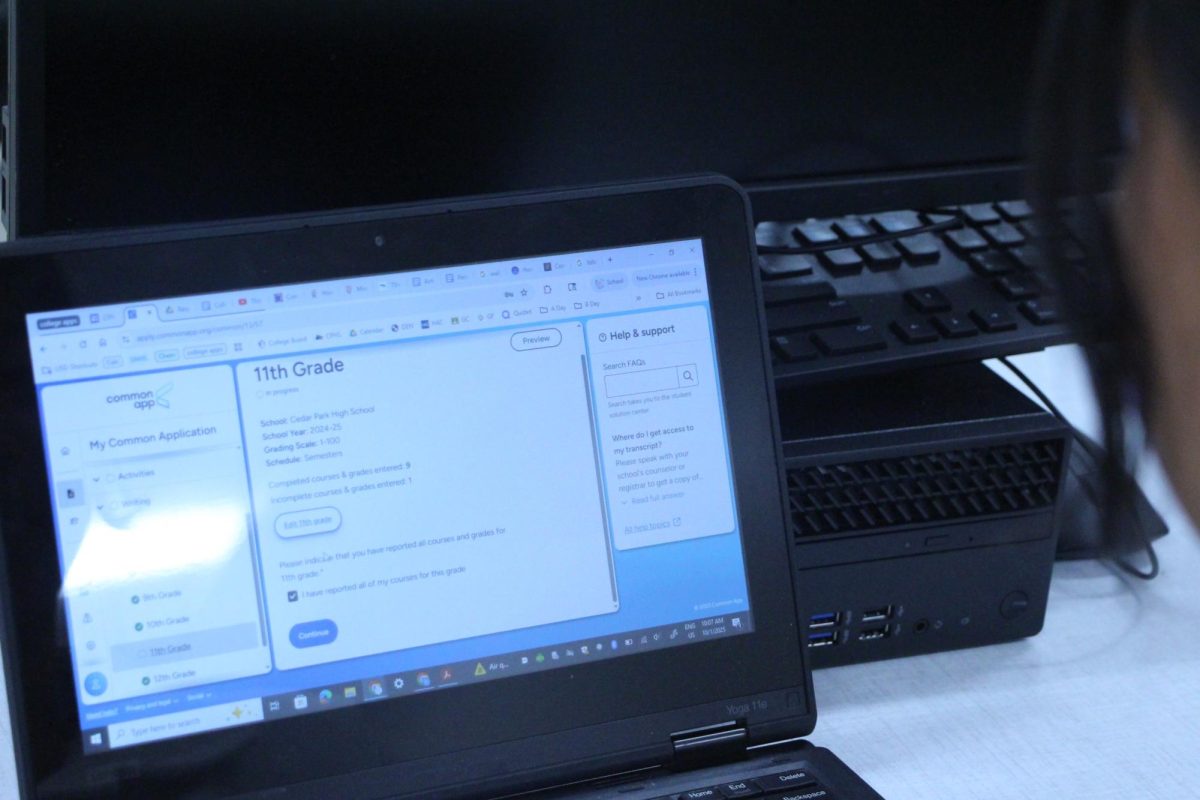
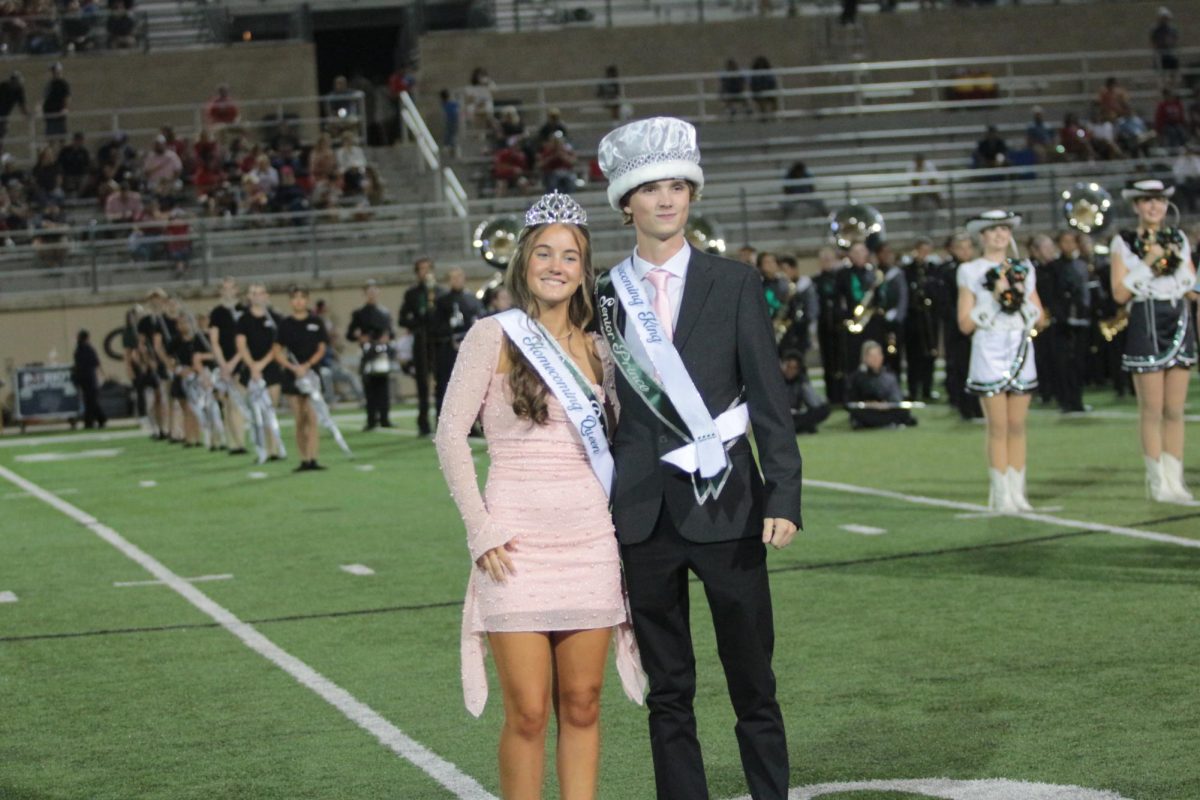



![As her hair blows in the wind, senior Brianna Grandow runs the varsity girls 5K at the cross country district meet last Thursday. Grandow finished fourth in the event and led the varsity girls to regionals with a third place placement as a team. “I’m very excited [to go to regionals],” Grandow said. “I’m excited to race in Corpus Christi, and we get to go to the beach, so that’s really awesome.” Photo by Addison Bruce](https://cphswolfpack.com/wp-content/uploads/2025/10/brianna.jpg)

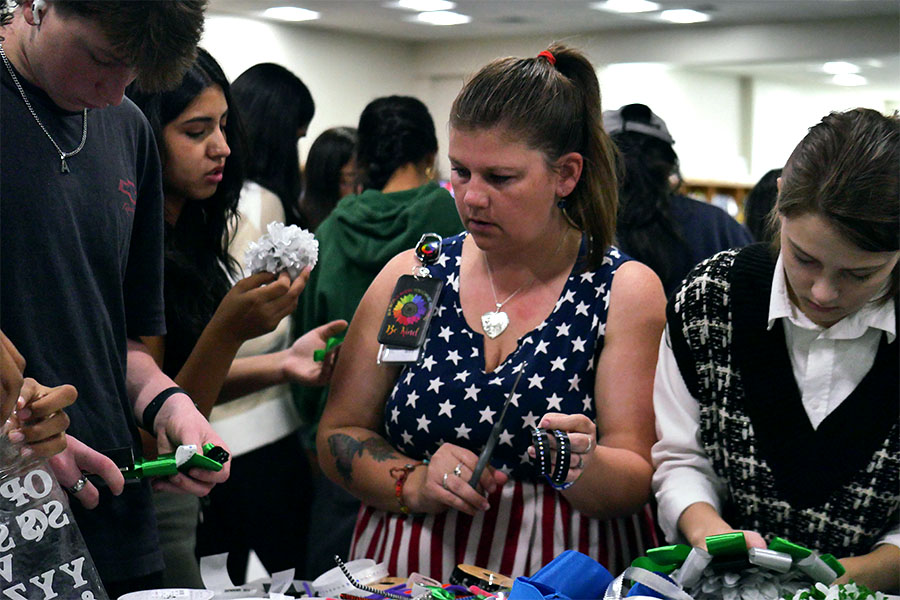
![Broadcast, yearbook and newspaper combined for 66 Interscholastic League Press Conference awards this year. Yearbook won 43, newspaper won 14 and broadcast took home nine. “I think [the ILPC awards] are a great way to give the kids some acknowledgement for all of their hard work,” newspaper and yearbook adviser Paige Hert said. “They typically spend the year covering everyone else’s big moments, so it’s really cool for them to be celebrated so many times and in so many different ways.”](https://cphswolfpack.com/wp-content/uploads/2025/05/edited-ILPC.jpg)





![Sitting with her friend senior Sohpia Struve at last year’s Austin City Limits Festival, senior Ava Zuniga poses for a picture under a pavilion. They are frequent attendees at ACL, an annual music festival at Zilker Park. “I would recommend seeing a bunch of people,” Zuniga said. “This past year, we camped out for Chappell [Roan] for a really long time. I think the whole point of ACL, [which] is a lot of fun, is that you can go see so many different people, even if you don’t know them. So by camping by one person, it really limits yourself from being able to go see a bunch of people.” Photo courtesy of Ava Zuniga](https://cphswolfpack.com/wp-content/uploads/2025/10/EE9E9484-FE6F-4AA0-B5F5-0C177AB32841-1200x857.jpeg)
![Looking down at his racket, junior Hasun Nguyen hits the green tennis ball. Hasun has played tennis since he was 9 years old, and he is on the varsity team. "I feel like it’s not really appreciated in America as much, but [tennis] is a really competitive and mentally challenging sport,” Nguyen said. “I’m really level-headed and can keep my cool during a match, and that helps me play a bit better under pressure.” Photo by Kyra Cox](https://cphswolfpack.com/wp-content/uploads/2025/09/hasun.jpg)

![Bringing her arm over her head and taking a quick breath, junior Lauren Lucas swims the final laps of the 500 freestyle at the regionals swimming competition on date. Lucas broke the school’s 18-year-old record for the 500 freestyle at regionals and again at state with a time of 4:58.63. “I’d had my eye on that 500 record since my freshman year, so I was really excited to see if I could get it at regionals or districts,” Lucas said. “ State is always a really fun experience and medaling for the first time was really great. It was a very very tight race, [so] I was a bit surprised [that I medaled]. [There were] a lot of fast girls at the meet in general, [and] it was like a dogfight back and forth, back and forth.” Photo by Kaydence Wilkinson](https://cphswolfpack.com/wp-content/uploads/2025/03/Kaydence-2.7-23-edit-2.jpg)
![As the support team sits and poses for a photo in the cafeteria with the counseling team they eagerly wait to start their day. "We [all] seem to be a team, I get up every day and there's days where I don't want to go to work today, but I'm thankful that I have a job and I'm blessed to have what I have," Christopherson said. Photo Courtesy of Julie Weltens.](https://cphswolfpack.com/wp-content/uploads/2025/01/AF9E8470-10D7-4C91-BF28-EC8F86BAB66C-1200x852.jpeg)
![Jumping off the ground, senior linebacker Bennett Patton snatches the ball out of the air for an interception at Thursday’s game against Chaparral. Patton had two interceptions in the 56-14 victory, tying the school record for interceptions in a game. “I was just playing the game,” Patton said. “[I’m] going to go into next week, forget about it and stay humble.” Photo by Harper Chapman](https://cphswolfpack.com/wp-content/uploads/2025/09/bennett-interception.jpg)













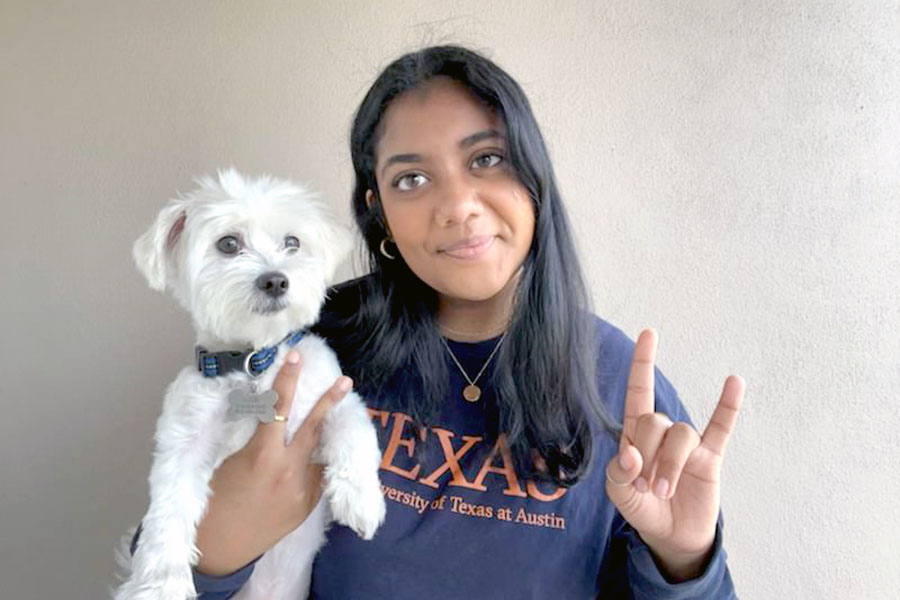
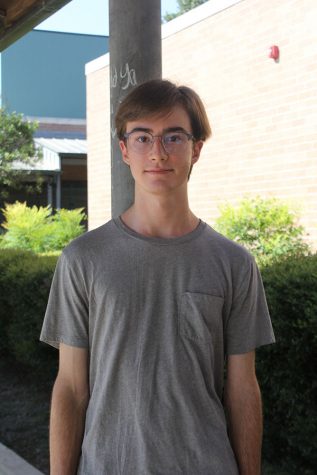
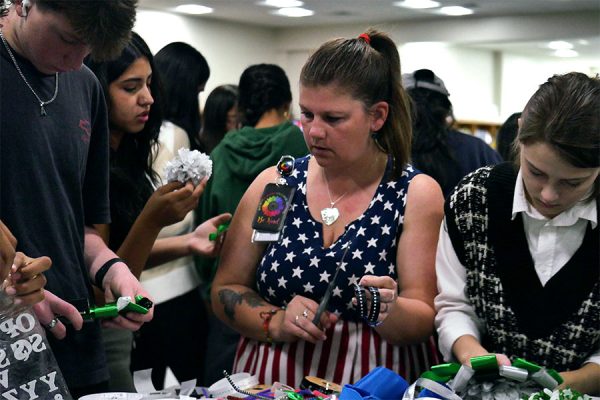
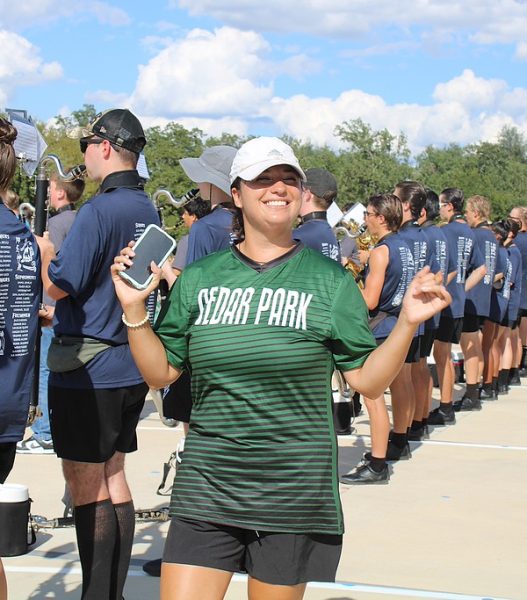
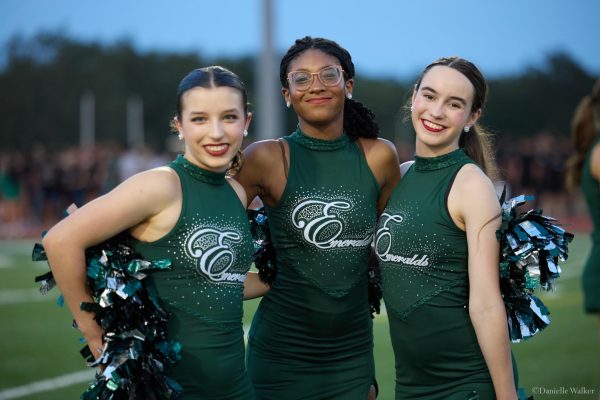
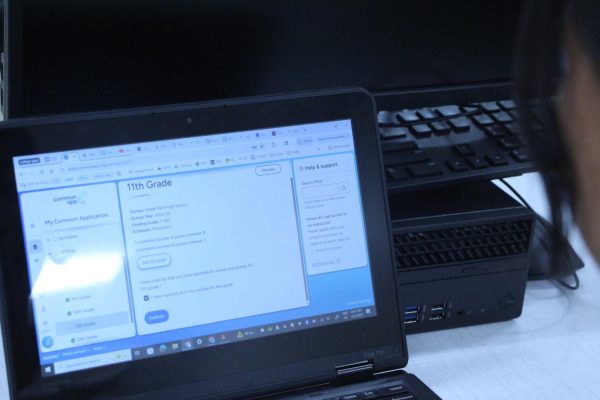
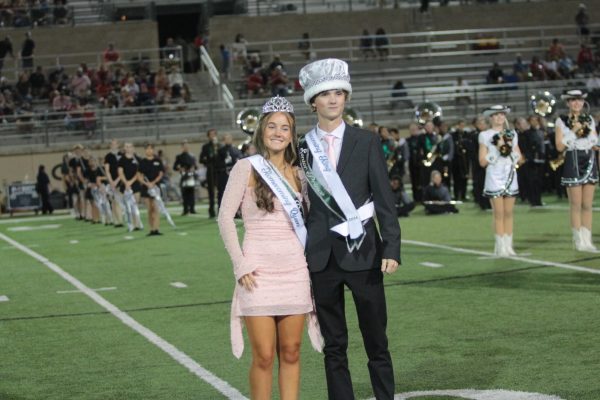
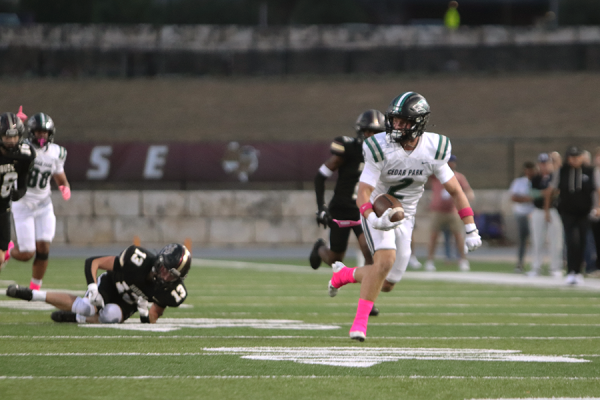
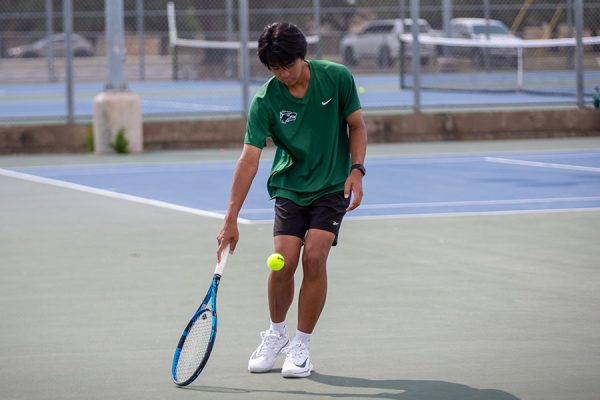
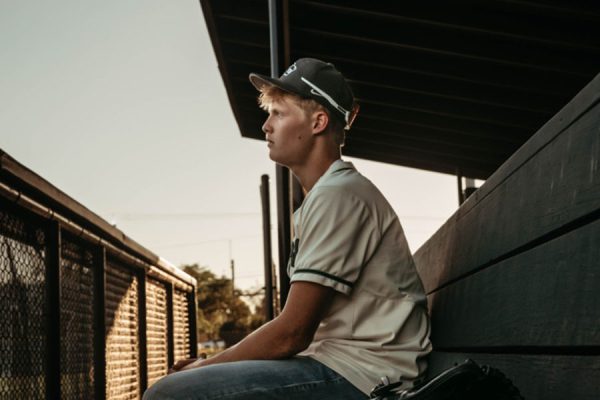

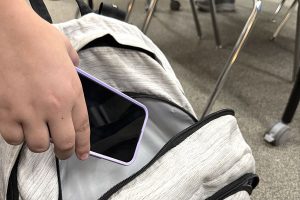
![The fire department came to the school after students were evacuated when smoke started coming from the ceiling of a classroom. All students and staff are safe. “All of my friends left their stuff too, so we couldn’t contact our parents, and it was stressful,” senior Brynn Fowler said. “It was scary because I didn’t know [what was going on], and I couldn’t find anyone because it was a big crowd.” Photo by Anthony Garcia](https://cphswolfpack.com/wp-content/uploads/2025/09/firetruck-300x200.jpg)




